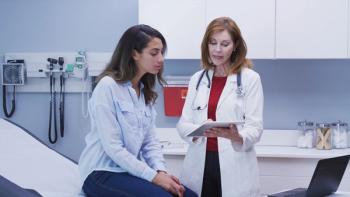
What's Next?
What's next for Cancer Survivors after treatment?
Just imagine for a moment that you are a woman going for your annual mammogram. You have a busy life and this is just another appointment that shouldn’t take long. Little do you know, your life is about to change forever! You leave and within the next day you get called back to have further testing. You keep telling yourself that this isn’t anything to be concerned about. You leave the appointment with a tender breast and a million things to get done. Then comes that dreaded phone call no one should have to experience — “I am calling to inform you that your biopsy has come back and that it shows that you have breast cancer.”
As a nurse you hear this story told over and over, but have you ever stopped and put yourself in their shoes? Have you ever thought about the different emotions you could experience in that one small conversation?
As a patient, the roller-coaster begins and information is being thrown from every direction. It is too much to comprehend. The next thing you know, you have an appointment with a surgeon, an oncologist, maybe even a radiation oncologist, and you are also scheduled for multiple tests. So, for the next 6 to 8 months someone tells you where to be, when to be there and schedules everything for your treatment. This relieves some of the stress of trying to figure which appointments you have to make and making sure everything gets done when it is supposed to. Your body is in fight mode and you go through the motions of treatment.
Then the day comes when everyone involved in your roller coaster tells you that it is your last treatment and the good news is that you don’t need to come back for 3 months. It’s a sigh of relief... until you reach the parking lot and a thousand things start crossing your mind.
What if?
What did I have done?
What was the name of that medication?
A patient just needs someone to say that these feelings are normal and guide them through their next steps. As a nurse I think that we take this moment for granted. I can’t imagine fighting for my life, going through treatment, and then to be told to go live your life. Three months seems so long when you’ve been seeing someone regularly. I never have stopped to think about the flood of emotions the patients experience during this time until I changed jobs and became a Survivorship Nurse. I can remember as a primary nurse being so excited for my patients because I thought they would be tired of coming for treatment. I remember thinking that maybe they were tired of seeing me and all the appointments they had to make. I also remember thinking they could get back to their “normal” activities and sometimes the patient would just sit there crying. Looking back, I wish I would have known what I know now.
What’s next for the patient and how could we help them? Survivorship programs are more important than ever. They bridge the gap between completion of treatment and first visit back to the oncologist/surgeon/radiation oncologist after treatment. I am sure we have all heard physicians tell their patients to start exercising to help with fatigue and help lose weight or even go to support groups to help deal with emotions. Unfortunately, many of our patients don’t know what they should be doing and instead they do nothing. The symptoms of treatment don’t improve as quickly as they want them to and they become discouraged and depressed. So, if there is a survivorship program out there, why not take advantage of it? As a survivorship nurse, I help educate the patients and help direct them and reassure them. You have a navigator in the beginning, why not someone at the end of treatment? Someone there to explain to them what they have gone through, what treatment they have received and then discuss follow up care for surveillance.
Take it a step further—what if they had access to a gym with a personal trainer to help them gain their strength back and find a workout program just for them? What if they had access to programs such as massage therapy, art therapy, music therapy, and educational programs?
I truly believe that survivorship programs should be just as important as treatment options for the patients. We all can do our patients a favor and find survivorship programs to help them on the road to recovery.
Newsletter
Knowledge is power. Don’t miss the most recent breakthroughs in cancer care.































































































